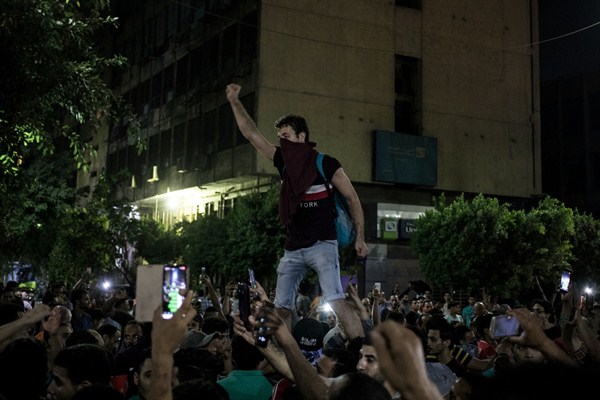Egyptians witnessed something rare last Friday night: protests against President Abdel Fattah el-Sisi. Amid heightened repression, Egyptians have mostly stayed home ever since Sisi took power in a 2013 coup, two and a half years after mass protests had led to the ouster of longtime President Hosni Mubarak. Sisi quickly and ruthlessly crushed any opposition, starting with the Muslim Brotherhood. He jailed Mohammed Morsi, Egypt’s first democratically elected president, and other Islamist leaders, along with any perceived critics of his regime. It’s no wonder most Egyptians have opted to keep their heads down.
Friday’s protests, which unfolded in Cairo and other cities, were small but significant. Just as telling was the government’s reaction. Taken together, and in the context of some of Sisi’s foreign policy decisions, they add up to a picture of an authoritarian leader who is strong and confident, but not without vulnerabilities.
The protests were called from abroad by an exiled former government contractor, who in a series of videos has accused Sisi of corruption and mismanagement. While demonstrators were calling for his ouster, Sisi was at the United Nations in New York. The authorities in Egypt responded to the protests forcefully, but without bloodshed—a sharp contrast to the massacre in Cairo’s Rabaa al-Adawiya square in August 2013, when security forces killed hundreds of unarmed protesters staging a sit-in against Sisi’s coup. There may not have been bloodshed this time, but according to human rights groups, more than a thousand people have been arrested.

